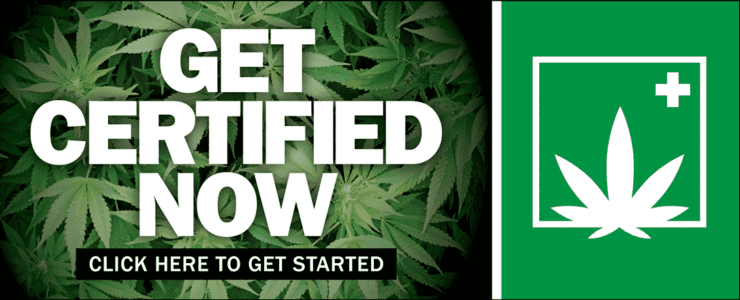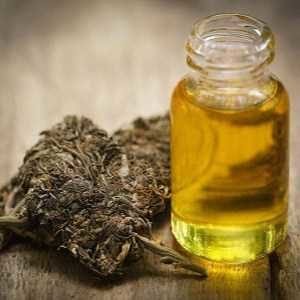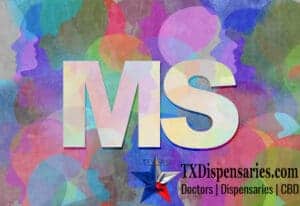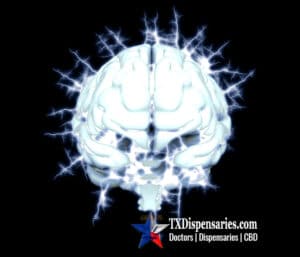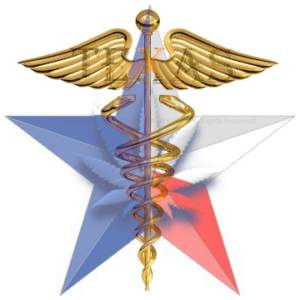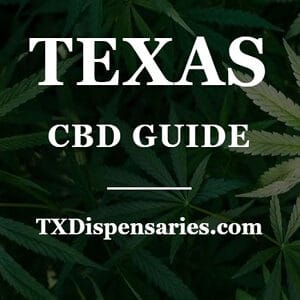CBD In Texas
2023 TX CBD Buyers Guide
CBD in Texas is now legal and causing quite a stir. While the U.S. FDA continues to drag its feet on setting up CBD regulations, the Texas CBD market continues to mature and evolve. Texas legalized Hemp and after the discovery of different THC cannabinoids that can be squeezed out of the Hemp plant, inadvertently legalized THC in several forms.
New Studies on CBD
Recent studies have shown that CBD is associated with behavioral improvements in children with autism, may be useful in treating brain cancer, and is useful for relieving pain, reducing anxiety, and improving sleep. Also, a study out of Switzerland presented data that suggest that smoking CBD-rich cannabis flower does not impair driving skills. Moreover, data presented in one report suggest that 71% of participants in a study experienced improvements in their health and well-being.
Regardless of all the good news, the FDA has yet to approve CBD as a supplement. However, four members of the U.S. House of Representatives have introduced a bill that would create a national regulatory framework using CBD as a food and beverage additive.
Hemp in Texas Legalized
Things began to change in 2018 when after nearly eight decades of prohibition, lawmakers in Washington DC divorced hemp from the definition of marijuana and removed it from the Drug Enforcement Agency’s list of Schedule I controlled substances and put most of the regulatory powers into the hands of the states.
It didn’t take long for Texas lawmakers to make their move. Gov. Greg Abbott quickly signed House Bill 1325. The measure officially legalized the cultivation, processing, sale, and possession of hemp. However, the strains grown must produce under 0.3 percent THC to be considered hemp as defined by federal law. If that limit is exceeded the entire crop must be destroyed.
Along with the hemp bill, Texas lawmakers also passed House Bill 3703 expanding the list of qualifying conditions for the low-THC cannabis oil. Some of the new qualifying conditions adopted in 2021 include CTE, any cancer, and PTSD as well as upping the amount of THC allowed.
Texans are using CBD oil for many other conditions such as anxiety and pain relief. And with the distinction between hemp CBD oil and cannabis oil equaling a mere 0.2 percent different in THC, and given the strict rules surrounding the state’s anemic medical marijuana program, few Texans are expected to participate.
Now that you know the backstory, let’s look into some of the most frequently asked questions related to hemp production and the sale of CBD oil in the state of Texas.
Texas hemp CBD FAQ | 2023
Is CBD oil is legal in Texas?
The short answer is Yes! With the passage of HB1325, Texans no longer need fear being arrested for possession of hemp-derived CBD oil. Hemp is now 100 percent legal for all Texas residents as long as the concentrations of THC fall below 0.3 percent. Products made from marijuana or any products containing greater than 0.3 percent THC are still illegal outside of the states medical marijuana program where the limit is still limited to 0.5 percent.
Is Delta 8 THC Legal in Texas?
First D8 THC was banned, then the delta-8 ban in Texas was lifted after a judge temporarily blocked the state from classifying it as a controlled substance.
This is a great example of the mind-bending evolution of the Texas CBD market. The relatively new product called delta-8 THC is essentially a cannabinoid that is similar to the familiar buzz-inducing delta-9 THC except that it’s produced directly from hemp CBD rather than from marijuana. Delta-8 is less intoxicating and less likely to cause feelings of paranoia than the THC found in marijuana. Nonetheless, it does have some intoxicating properties.
Because it’s a form of tetrahydrocannabinol that has mild psychotropic effects, Delta-8 falls into a gray area of CBD laws.
Can doctors in Texas prescribe CBD?
Texas is one of the few states that actually uses the term “prescription” for recommending cannabis oils. Most states prefer the term “recommend” simply because the federal government still considers medical cannabis to be illegal. Texas lawmakers’ choice to call the recommendation a prescription actually doomed the program to underperform as most doctors will shy away from the process.
However, there is a drug called Epidiolex, which is essentially pure CBD. Epidiolex has been approved by the FDA for use by children suffering from certain intractable forms of epilepsy with a doctor’s prescription. This is also the only cannabis-based drug covered by health insurance.
What medical conditions are being treated with CBD oil in Texas?
In order to qualify for a prescription for low-THC cannabis oil, a patient must be diagnosed with one of a shortlist of qualifying medical conditions including epilepsy, Parkinson’s Disease, ALS, terminal cancer, autism and many kinds of seizure disorders. However, there are also additional conditions that are commonly treated with hemp CBD oil.
Here are some of the many conditions being treated with hemp CBD oil in Texas:
- Acne
- ADD & ADHD
- Addiction & Alcoholism
- ALS (Amyotrophic Lateral Sclerosis)
- Cancer
- Colitis & Crohn’s Disease
- Depression
- Diabetes
- Endocrine Disorders
- Epilepsy & Seizures
- Fibromyalgia
- Hair Loss
- Heart Disease
- HIV & AIDS
- Huntington’s Disease (HD)
- Inflammation
- Insomnia
- Kidney Disease
- Liver Disease
- Migraines
- Mood Disorders
- Multiple Sclerosis (MS)
- Nausea
- Neurodegeneration
- Obesity
- Osteoporosis/Bone Health
- Pain
- Parkinson’s Disease
- PTSD
- Rheumatism
- Schizophrenia
- Tourette’s Syndrome
- Traumatic Brain Injury (TBI)
- Weight Loss
Can I buy CBD oil products online in Texas?
What hemp CBD products are available in Texas?
You can legally buy CBD oil online and have it delivered to your door. It’s perfectly legal as long as it’s derived from hemp.
Buying CBD online has some distinct benefits. For example, you’ll find a much larger selection of CBD brands and products online than you will encounter in a local shop. Local shops might only carry a few brands, and these might not be the most trusted brands or highest-quality products.
Be sure to choose only products produced in states that require lab testing for purity and potency. Do your homework.
Where can I buy CBD oil in Texas?
You can get a Texas medical cannabis prescription if you’re interested in jumping through the hoops to get a prescription for cannabis oil. The card entitles you to purchase your medicine at a licensed dispensary. There are very few in Texas.
Medical Cannabis Dispensaries In Texas
If instead, you are shopping for CBD-rich hemp oil or other CBD-infused products, you’re in luck. Brick-and-mortar stores that sell CBD oil and other CBD products are plentiful. Most are located in the larger cities in Texas such as Houston, San Antonio, Dallas, Austin, Fort Worth, and El Paso but CBD can now also be found in rural areas as well.
Can I legally grow hemp in Texas?
House Bill 1325 authorized the production, manufacture, retail sale, and inspection of industrial hemp in Texas. The law also legalized the production of CBD oil. However, it’s still not legal to grow hemp in Texas until TDA submits a state hemp plan to the USDA and receives approval. And prior to submitting the state plan, the TDA is required to wait for guidance from USDA on implementation procedures which came on October 29, 2019.
For more information on growing hemp in Texas check out the links at the end of the article.
Can I legally sell hemp CBD oil in Texas?
Texas CBD retailers can sell CBD oil tinctures, capsules, topicals, and other non-edible CBD products that have under 0.3 percent THC and are derived from hemp. Plenty of shops are selling CBD edibles, CBD vape pens, and CBD beverages with seeming impunity.
The state agency that oversees the production, testing, marketing, and sale of CBD consumables in Texas is the Department of State Health Services (DSHS), not TDA. As new information becomes available, the state agencies’ websites along with TX Dispensaries will be updated. In the meantime, the state has made no effort to restrict the sale of CBD products since the passage of the hemp bill.
Here are some helpful links to learn more about hemp CBD oil
Learn more about hemp CBD laws in Texas
- House Bill HB1325
- Texas hemp regulations
- Cato Institute – Hemp Bill Leaves Texas Prosecutors in the Smoke
- Click2 Houston – More fallout from state’s new hemp law
- Department of Public Safety Interoffice Memorandum HB1325 Guidance
- Texas Food and Fuel Association – Convenience Stores Free to Sell CBD Products in Texas


